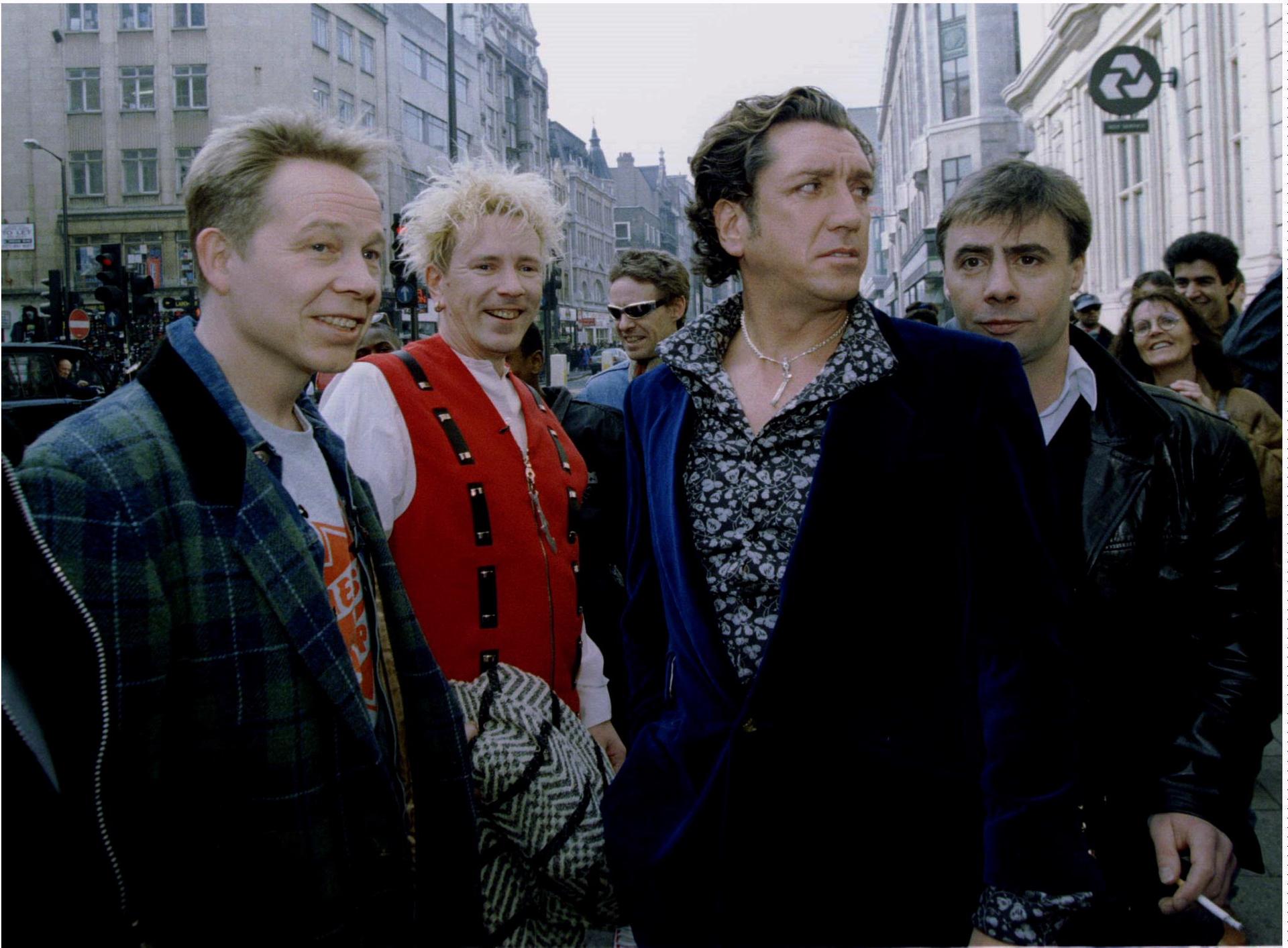A pedestrian walks past a mural by French street artist, Tilt, which includes the lyrics to the Sex Pistols' "Anarchy in the UK" in the Shoreditch area of London, Jan. 14, 2012. Ornate graffiti appears on many buildings and structures in areas of the east London borough of Shoreditch.
Oct. 28 marks the 40th anniversary of the release of "Never Mind the Bollocks" by British punk band the Sex Pistols, undoubtedly one of the most iconic — and controversial— albums ever made.
"Never Mind the Bollocks" topped the charts in the UK, though it couldn't even crack the Billboard Hot 100 in the US. Nevertheless, with songs such as "Pretty Vacant" and "Anarchy in the UK," the album has gone on to be regarded as one of the greatest of all time — on both sides of the Atlantic. Listening to it again, its power and energy feel just as raw and fresh as they did 40 years ago.
If anything, the music sounds better without the distractions of the band’s contemporary, outrageous antics. Seared into popular consciousness at the time was a legendary 1976 appearance on a London TV show hosted by Bill Grundy.
The producers had booked Queen to appear but at the last minute that band couldn’t make it, and so, the record company offered the Sex Pistols instead. When they appeared on the live show, Grundy, who told viewers that both he and the Sex Pistols had been drinking, showed his contempt for the band and all it meant to be punk and egged them on to be outrageous. And so they were, spewing forth a torrent of foul language not heard before or since on UK television. It cost Grundy his job but landed the Sex Pistols on the front pages of the British tabloids.
Please note, this video includes the foul language that cost Grundy his job.
Some tracks on "Never Mind the Bollocks" also seemed designed to offend. The lyrics to "Bodies" graphically describe an abortion with multiple uses of the F-word. When "God Save the Queen" was released as a single, it was banned by both the BBC and commercial radio in the UK, but it still reached no. 2 on the UK singles chart.
"Bodies" is reportedly the only track featuring the band's official bassist, Sid Vicious. His performance was considered so weak that the producers took the opportunity of Vicious being hospitalized with hepatitis to have the band's guitarist Steve Jones, record the bass tracks.
According to Sid Vicious and Johnny Rotten, the album’s title was a common Steve Jones saying but it was also offensive to many, containing crude British slang for a part of the male anatomy. Radio DJs were told to refrain from mentioning the title, and record shops refused to display the album cover.

But in Oct. 1977, the band wasn’t just releasing an album — it was also defining a moment in the culture that lives on in punk and its progeny today.
As Noel Gallagher of Oasis told the BBC, “For that band to have only been going for 2 1/2 years and to change music. … To change the way that people dress, talk and feel and culture. … Not many people get to do that.”
